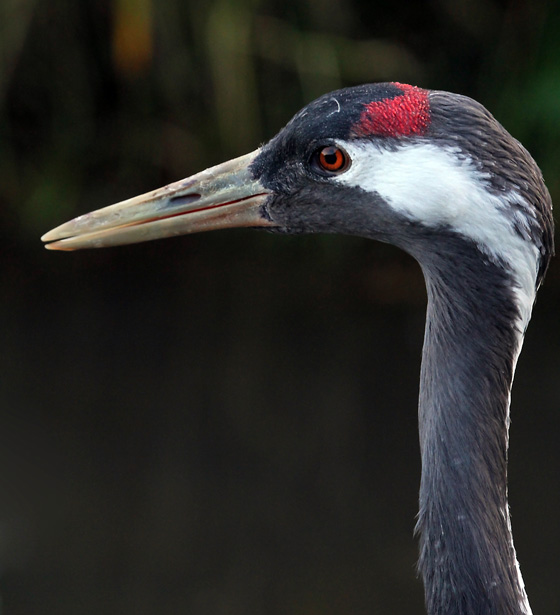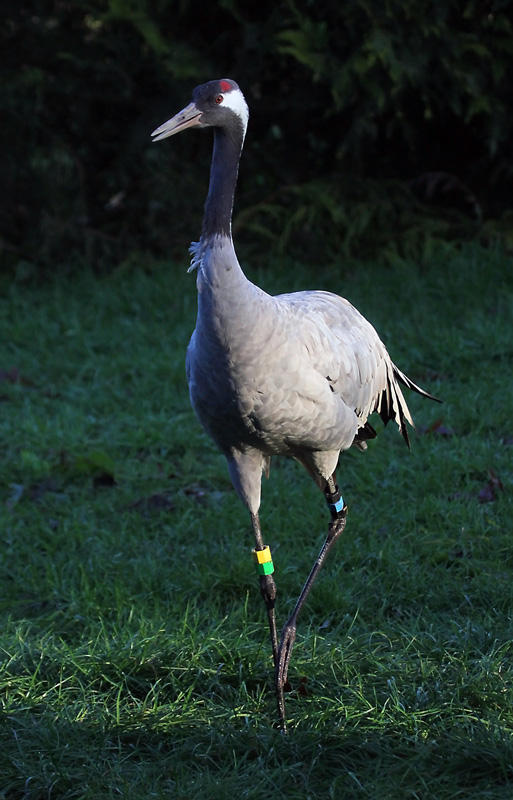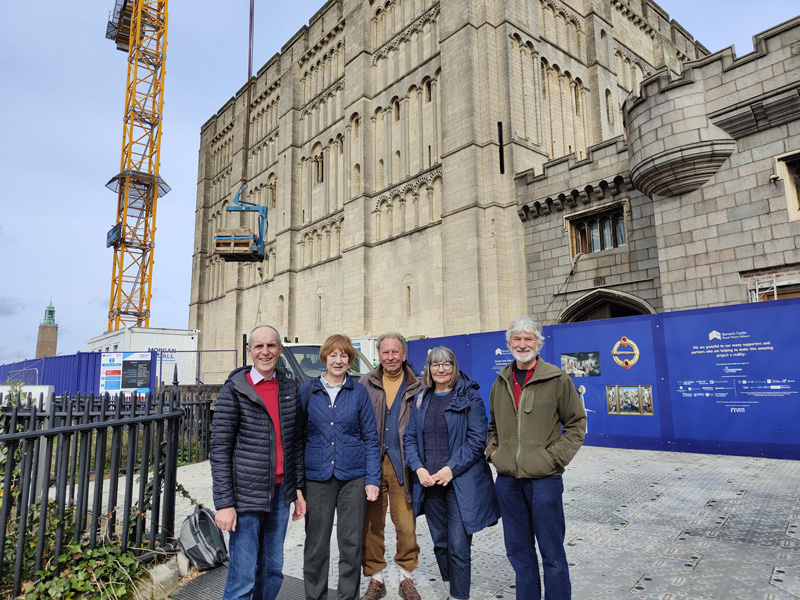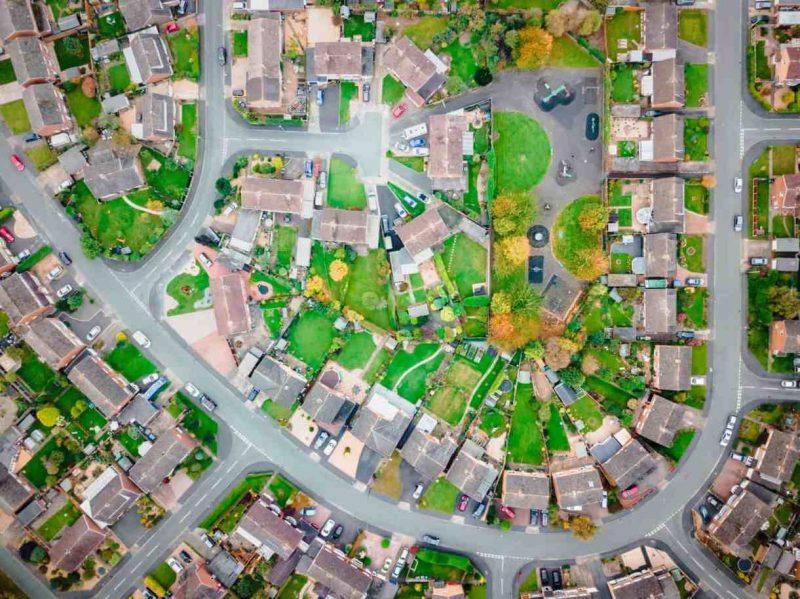Events in Norfolk and Suffolk / Tourist Attractions Norfolk and Suffolk / Wildlife November 25, 2013
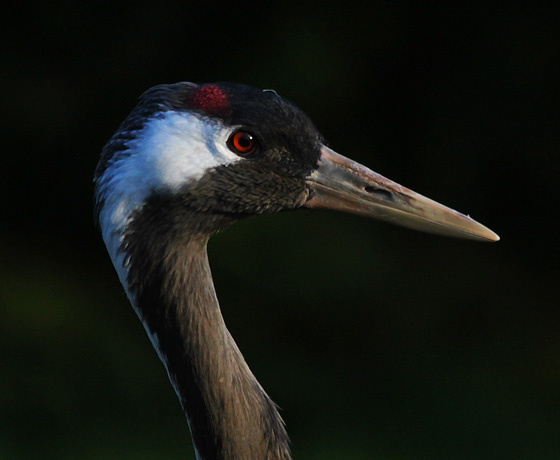 Dennis, a three year-old Eurasian crane at the Pensthorpe Conservation Trust (PCT) in Norfolk has become the first crane in the UK known to have been successfully operated on for cataracts.
Dennis, a three year-old Eurasian crane at the Pensthorpe Conservation Trust (PCT) in Norfolk has become the first crane in the UK known to have been successfully operated on for cataracts.
Dennis was diagnosed with cataracts in both eyes last year after displaying unusual behaviour, including spending a lot of time on his own and losing weight; following a decision not to release him into the wild as part of the Great Crane Project.
After being professionally diagnosed by a vet, the decision was made to operate on both his eyes to remove the cataracts to give him a better quality of life.
The successful operation to restore the sight in both of his eyes was carried out by leading veterinary ophthalmologist David Gould at Davies Veterinary Specialists in Hertfordshire this summer.
Chrissie Kelley, Head of Species Management at the PCT comments: “Dennis came to Pensthorpe in 2011 after the decision not to release him into the wild. Before the operation he was unable to see much more than silhouettes but now has restored vision and is doing well.”
Dennis is now fully recovered and is enjoying an enhanced quality of life on site at Pensthorpe.
Damon Bridge, Project Manager of the Great Crane Project says: “This is wonderful news. On his release back in 2010 it quickly became obvious that he would not be able to survive in the wild but the cause of his odd behaviour was a mystery. To find out that he was suffering with cataracts and then to have his sight fully restored is just fantastic. It must be a huge relief for him.”
David Gould from Davies Veterinary Specialists says: “I am used to performing cataract surgery in dogs and cats, and occasionally in more exotic species, but this was the first crane that I have ever operated on. The cataract surgery was very successful and post-operatively Dennis appears much more confident now that he has regained vision.”
The Great Crane Project aims to restore healthy populations of wild common cranes throughout the UK.
The project aims to release around 20 young birds each year between 2010 and 2015 with 100 birds released by 2015.
 We can promote your business every week on the Iceni Post!
We can promote your business every week on the Iceni Post!

